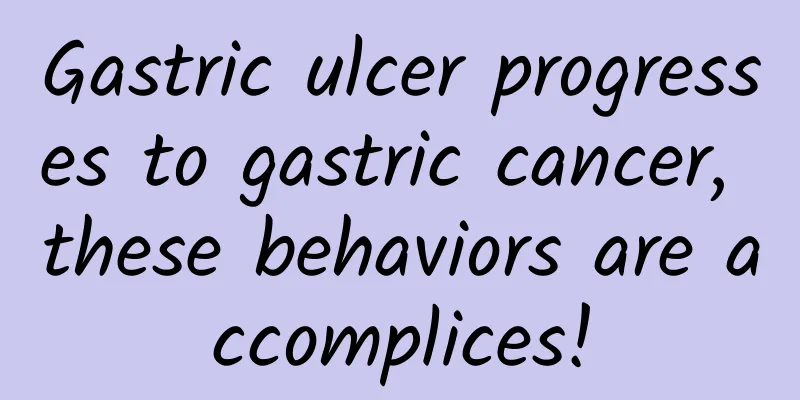The female star suffers from dissociative conversion disorder, and this problem must be paid attention to!

|
Review expert: Chen Mingxin, national second-level psychological counselor, senior human resources manager In the glamorous entertainment industry, celebrities always show their best side to the public. However, celebrities are also ordinary people and they also face various health problems. Recently, a female star revealed on Weibo that she suffers from dissociative conversion disorder, which has attracted widespread attention. Source: Weibo So what is dissociative conversion disorder? Is it a form of sun-induced depression? Dissociative conversion disorder Dissociative conversion disorder may sound unfamiliar, but it is actually a common mental illness. 0 1 What is dissociative conversion disorder Dissociative conversion disorder, once known as "hysteria," is a mental disorder caused by psychological factors . Simply put, when people encounter strong emotional fluctuations, tremendous pressure or psychological trauma, the brain's "stress response" mechanism may become disordered, leading to various abnormal manifestations in the body, but these manifestations do not originate from substantial lesions of the body's organs . Most cases begin in young adulthood, and it is rare for the disease to first occur after the age of 35. The disease starts suddenly, and the symptoms have a distinct emotional tone. 0 2 Dissociative and conversion symptoms Dissociative conversion disorder is mainly manifested by dissociative symptoms and conversion symptoms. Some patients will show dissociative symptoms. Also known as hysterical mental symptoms, the main manifestations are a narrowing of the scope of consciousness, selective amnesia or mental outbursts . Patients may partially or completely lose their self-identity and memory of the past, and they may show a narrowing of consciousness, selective amnesia, or mental outbursts. Symptoms of emotional outbursts include dramatic performances such as crying and laughing, beating the chest and stamping the feet, and shouting and screaming, and even dream-like or drunken states. In addition, depersonalization, memory loss, and identity disorders may also occur. For example, the patient may suddenly forget who he is or forget important events that have happened. Another group of patients present with conversion symptoms . Also known as hysterical somatic symptoms, it will manifest various forms of physical symptoms , but after detailed medical examination, no physiological reasons can be found to explain these symptoms. This is not intentional by the patients. These symptoms are considered to be a symbolic transformation of the patients' unresolved inner conflicts and desires, and an external release of the unbearable pressure and pain deep in their hearts. Conversion symptoms are more like the body "speaking for the mind" and can imitate the symptoms of any disease, so they are also called "the great imitator". For example, patients may become blind, deaf, paralyzed or convulsed without any warning, and have somatic symptoms such as unsteady standing, aphonia, blindness, and deafness. Why does dissociative conversion disorder occur? The causes of dissociative conversion disorder are complex and may involve many aspects: Genetic susceptibility : Carrying certain gene variants may cause the brain to respond differently to stress and emotional stimulation. For example, polymorphisms in the serotonin transporter gene (SLC6A4) are associated with an increased risk of dissociative conversion disorder. Psychosocial factors : Adverse experiences during growth, strained interpersonal relationships, etc. may cause individuals to form coping mechanisms to alleviate inner pain, resulting in symptoms of dissociative conversion disorder. Neurodevelopmental abnormalities : Abnormal development of brain structure or function may affect an individual's ability to process emotional information and self-awareness, leading to the occurrence of dissociative conversion disorder. Stressful events : Major life changes, traumatic experiences, etc. can trigger overactivation of the brain's amygdala and induce dissociative conversion disorder. Traumatic childhood experiences : Childhood abuse or neglect may cause chronically high levels of cortisol in an individual’s brain, making the individual more susceptible to psychological stress and the development of dissociative conversion disorder. Dissociative conversion disorder is a neurosis, not a psychosis It is worth mentioning that dissociative conversion disorder is a neurosis rather than a psychosis, and it is completely different from the "sunny depression" mentioned in the hot search. 0 1 Mental illness: Sunny depression Mental illness refers to a disorder in brain functional activities. Psychotic patients often experience symptoms such as hallucinations and delusions, and these symptoms are usually out of touch with real life. Patients with sun-type depression often show symptoms such as low mood and loss of interest. In severe cases, they may develop delusions of guilt or even hallucinations, accompanied by sleep disorders and physical discomfort. 0 2 Neurosis: Dissociative Conversion Disorder Neurosis is a general term for a group of diseases, including depression, physical disorders, etc. The symptoms of neurosis are complex and diverse, but when objectively examined, the corresponding organic diseases are often not found. Patients with dissociative conversion disorder may experience symptoms such as memory loss, identity confusion, movement or sensory disorders, and no organic lesions of the nervous system. Once the inducement disappears, the patient can recover, which is consistent with the characteristics of neurosis. The clinical manifestations of dissociative (conversion) disorder are diverse, but are usually related to certain psychosocial factors. The continuation of the disease may be related to the continued existence of reinforcing factors. Therefore, joint efforts of medical staff, patients and their families are required. |
<<: Research finds that people who often eat "technology and hard work" tend to be emo
>>: Four misunderstandings about "bone spurs"
Recommend
Abdominal pain in late pregnancy
After pregnancy, women will have their most obvio...
Why do we sometimes wake up from sleep with a loud noise? It may be related to this...
Expert in this article: Zhang Lisan, Executive Di...
Why is the skin yellow?
Nowadays, many women are troubled by the problem ...
How to treat ectopic pregnancy?
For the problem of ectopic pregnancy, it is usual...
What to do if pregnant women have nasal allergies
Pregnant women are relatively weak in physical co...
How to grow juniper bonsai and what to pay attention to when growing juniper
Juniper is a common plant in life. It is loved by...
30 days after delivery, there is fresh blood but not much
After giving birth, women will be very weak and w...
Follicles not growing
Before undergoing in vitro fertilization, doctors...
How to Correctly Understand Medicines and Health Foods
In recent years, health food scams are common, es...
Will your eyes go blind if you play with your phone for a long time?
One minute with the doctor, the postures keep cha...
How to take care of your baby during the dog days
The dog days are the hottest weather in the year....
Be careful! If you see these symptoms, you must pay attention to them, or they may be signs of illness!
Reviewer of this article: Chen Sijiao, Chief Phys...
Is it easy to cure kidney deficiency in women?
Female friends usually have some physical conditi...
How to eliminate the thickness of trapezius muscle in girls
Muscles are an important part of the human body. ...
Why does my menstrual period end in one day?
Nowadays, having a normal menstrual period can be...









